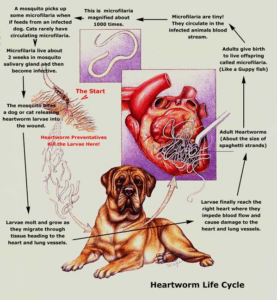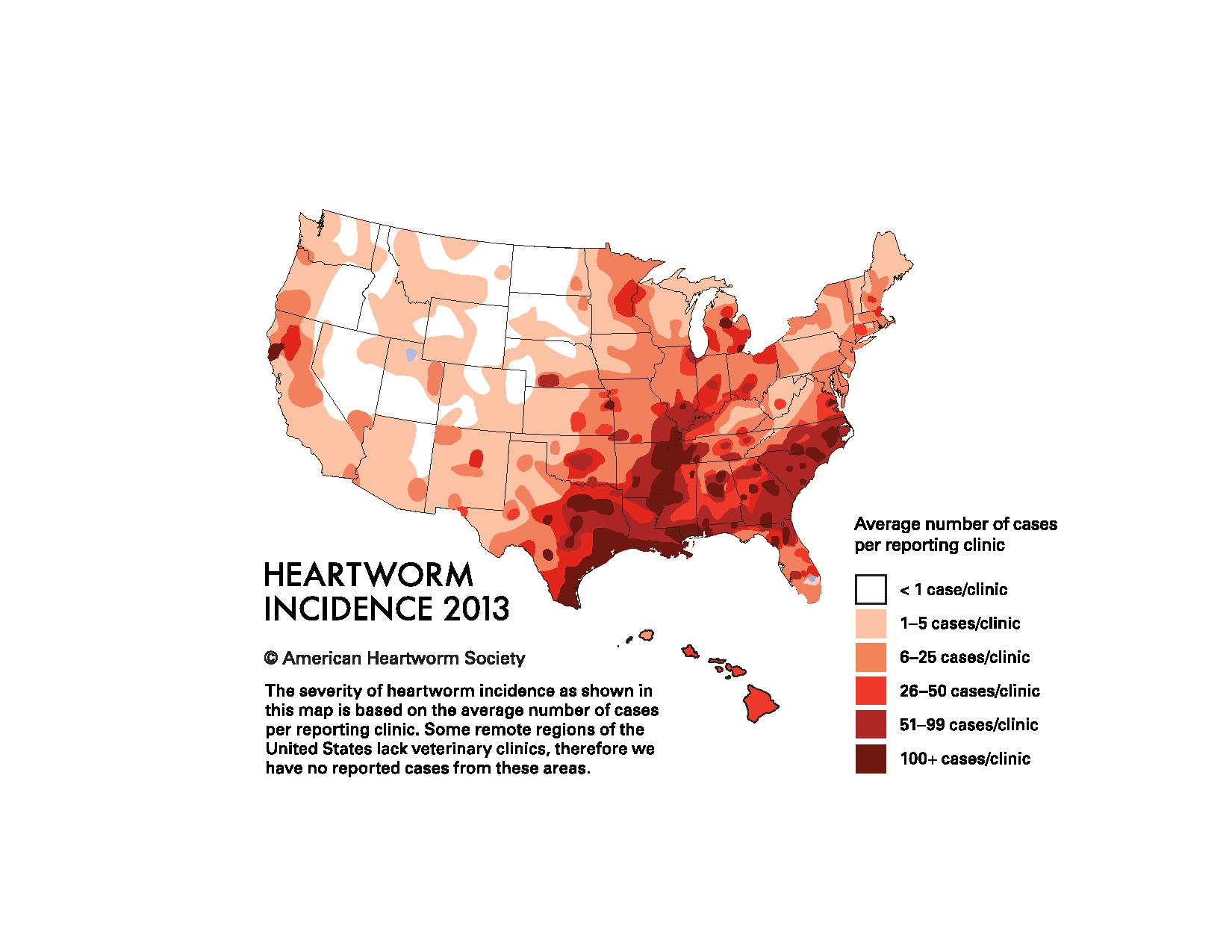The old adage “A picture is worth a thousand words” is certainly true with heartworms. It’s one thing for the vet to warn and encourage you to administer preventive medications but when you actually see what worms in the heart of a pet looks like, it’s hard not to act.
In 2013, Southeast Michigan veterinary clinics were reporting around 25-50 heartworm cases per clinic! This is an outrageous statistic considering how easy it is to prevent heartworm. Below are a few interesting heartworm facts from the Doctors Foster and Smith website you may not be aware of. Also take a look at this helpful infographic from the American Heartworm Society illustrating the life-cycle of a heartworm in both a cat and dog.

- The mosquito is the only known vector for transmitting heartworm.
- The average lifespan of heartworms in untreated pets is 5-7 years in dogs and 2-3 years in cats.
- Virtually 100% of dogs exposed to infective heartworm larvae become infected; in cats, this number drops to 61% to 90%.
- According to the Companion Animal Parasite Council, mature heartworms in cats average 21 cm (about 8.5″) in length, while those in dogs average longer than 26 cm (10″).
- Heartworm infection in cats exists everywhere heartworm in dogs exists.
- A study performed at North Carolina State University indicated that 25% of cats infected with heartworms were solely indoor cats.
- Heartworms may infect more than 30 species of animals including coyotes, foxes, wolves and other wild canids, domestic cats and wild felids, ferrets, marine mammals, and even humans.
- Prevention is far more effective and less costly than treatment.
- More than 70 species of mosquitoes are capable of transmitting heartworm.
- Heartworms cannot be passed directly from one pet to another.
- Many dogs recover from heartworm disease with appropriate treatment, but heartworms cause severe disease and sometimes permanent damage.
- In cats, there is no effective treatment to kill heartworms.
- Animals will usually test positive for heartworm disease approximately 6-8 months after they were bitten by an infected mosquito.
- It is much more difficult to diagnose heartworm disease in cats than in dogs.
- Heartworms affect cats differently than dogs, but the infection is equally as serious.

Graphic courtesy of American Heartworm Society
Recent Posts
About Us
Ann Arbor Animal Hospital is a locally-owned animal hospital operating for over 90 years in Ann Arbor, MI.
